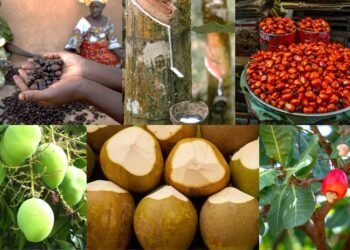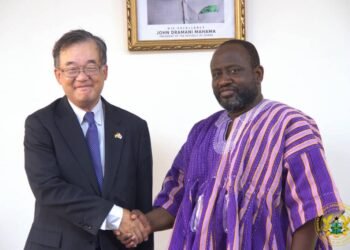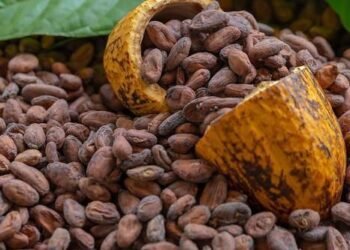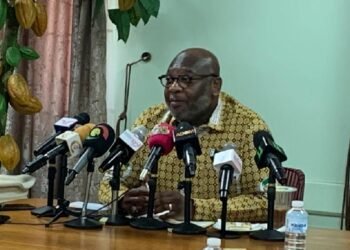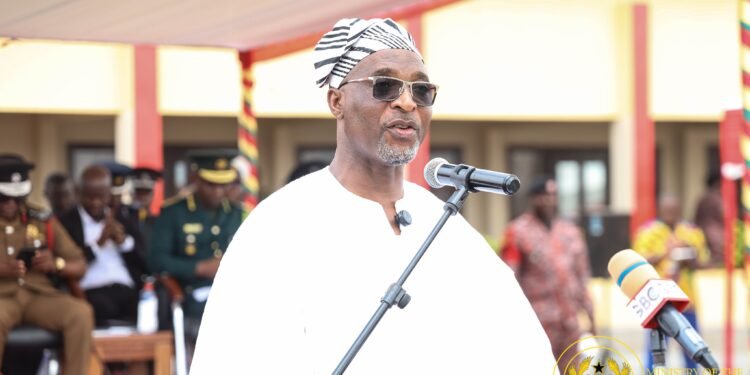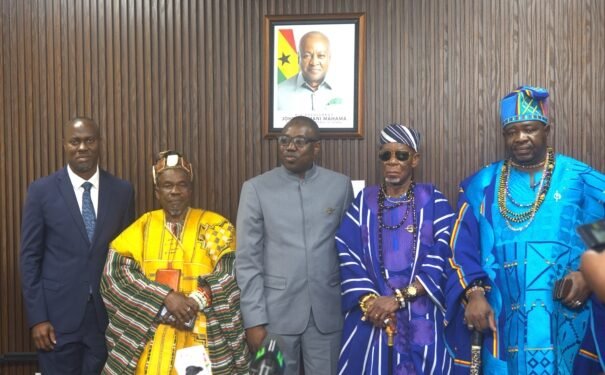Ghana is expected to earn$16 billion annually from the export of non-traditional tree crops.
The Vice President, Dr. Mahamudu Bawumia, made this known whilst speaking at the Nations Building Updates in Accra last Thursday.
“Government has also established a Tree Crop Development Authority with a focus on mango, cashew, rubber, oil palm, shea, and coconut. It is expected that these crops will together earn Ghana $16 billion annually compared to the $2.5 billion earnings from cocoa. This is a potential game-changer”, said Dr. Bawumia.
The Vice President further stated that the government has also introduced a pension scheme for cocoa farmers. Dr. Bawumia described the scheme as the first of its kind since independence.
Still speaking on the various interventions that the New Patriotic Party (NPP) has implemented in its first four years in office, the Vice President stated that “cocoa farmers’ incomes have also been improved with the historic implementation of the Living Income Differential (in collaboration with Cote d’Ivoire).
“Under the LID, cocoa farmers get an additional $400/ton or $25 for every bag of cocoa. This has resulted in a 28% increase in the producer price of cocoa to GHC 660/bag”.
Dr. Bawumia further noted that the Global Food Security Index, which measures affordability, availability, and quality of food across 113 countries, placed Ghana in 59th position in 2019, up from 78th position in 2016.
According to him, the NPP has introduced major innovations in the cocoa sector with successful initiatives such as hand pollination, early spraying, and replanting of cocoa farms at a cost to the government.
The vice president added that before the introduction of hand pollination, the majority of cocoa farmers in Ghana produced less than 20 pods per cocoa tree. However, with the introduction of hand pollination, the median count is 50 pods, and we have recorded cases of 200 pods per tree.
“The average yield per acre of cocoa beforehand pollination was 2.5 bags/acre. Today, farmers are recording up to 41 bags/acre. This is a massive increase in productivity“, he added.
Still, on the agriculture sector initiatives, Dr. Bawumia stated that through the Planting for Food and Jobs (PFJ), Planting for Export and Rural Development, and Rearing for Food and Jobs, agricultural productivity has improved tremendously and reduced the country’s dependence on food imports.
“PFJ has led to a 71% increase in the national production of maize and 34% in paddy rice. Yields per hectare of maize, rice, and soybean have also increased significantly and we now export 19 different food items, including maize, to the rest of ECOWAS countries”.
The vice president stated that their efforts to transform the agricultural sector has been recognized globally. He pointed out that the Global Food Security Index, which measures affordability, availability, and quality of food across 113 countries, placed Ghana in 59th position in 2019, up from 78th position in 2016.
“Our economic transformation agenda is on course. In the next four years we will build on the successes of our “One District, One Factory” and “Strategic Anchor Industries” policies to further enhance agro-processing, including cocoa processing, add value to our minerals and petrochemicals, promote labor-intensive and light manufacturing activities, continue the development of the Aluminum, Iron and Steel industries along their entire value chains through GIADEC and GIISDEC, and leverage our Regional Hub status and as hosts for the Secretariat of the AfCFTA to expand our access to regional and continental markets”.




